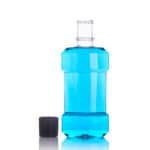I gnition interlocks have one purpose – to keep a driver from starting a vehicle if he or she has been drinking. And the devices do that well. Sometimes they appear to do it too well: the devices do such a good job detecting alcohol that they register a fail for reasons other than drinking – like mouthwash.
gnition interlocks have one purpose – to keep a driver from starting a vehicle if he or she has been drinking. And the devices do that well. Sometimes they appear to do it too well: the devices do such a good job detecting alcohol that they register a fail for reasons other than drinking – like mouthwash.
That’s a feature, not a bug – the interlocks are doing their job. Many over-the-counter mouthwashes contain alcohol, and after you rinse your mouth with them, the alcohol remains and will cause you to fail your ignition interlock breath test. Alcohol has its own chemical signature, whether it comes from a bottle of mouthwash or a bottle of gin, and the interlock’s fuel cell will detect it no matter where it comes from.
Fresh Breath vs DUI – What to Do?
It’s not necessary to sacrifice clean breath in order to avoid getting locked out of your vehicle and in possible DUI penalties. Here’s how to handle the situation.
- Rinse your mouth with water before the test. This is always a good idea, as bits of food can also ferment and cause an alcohol reading.
- Use a non-alcohol mouthwash. Many brands today do not contain ethanol – check the label. It’s still a good idea to rinse with water, though.
Are you missing out if you choose a mouthwash without alcohol? It appears not. The main use of the alcohol is to dissolve and stabilize the oils that carry the flavors and scents in the mouthwash. Manufacturers have found other ways of doing that, don’t feel left out.
So keep that bottle of water close by, and enjoy your date.
If you want to learn more about ignition interlock devices, check out our partners at LifeSafer.

